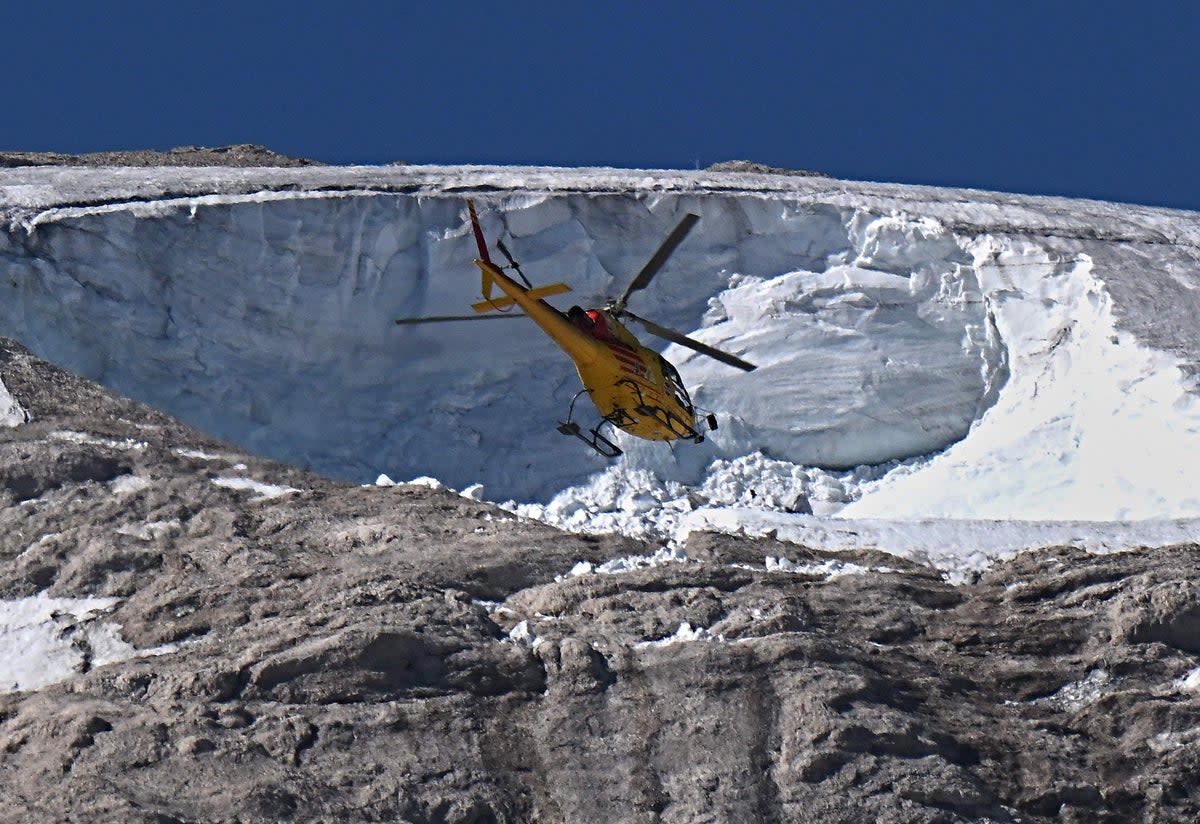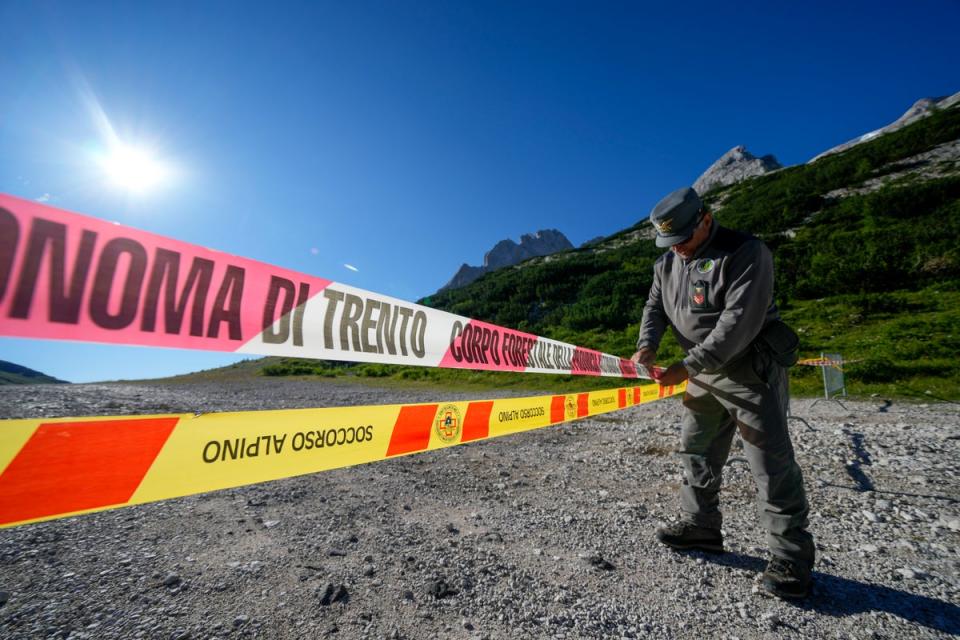Italian Alps glacier collapse death toll rises to 9, with 3 still missing

At least nine people have now died after a chunk of a glacier broke loose and killed a group of hikers in the Italian Alps.
Rescue teams found two more bodies using drones on Wednesday, after part of the Marmolada glacier, near Punta Rocca (Point Rock), fell in the Dolomite mountains in northeastern Italy on Sunday.
It is feared up to 12 people may have been killed in the freak incident, which has been blamed on rising temperatures and climate change. The size of the glacier’s detached pinnacle has been compared to an apartment building.
When the glacier fell, the mountain peak was reportedly 10C. A normal temperature for this time of year is below 0C.
Rescue coordinators hope to send a team of experts and search dogs to the site on Thursday when clearer weather is forecast.
Part of the mountain will remain closed to tourists while rescue efforts continue and to stop climbers from accessing possibly dangerous areas.

Relatives of the missing pressed for the retrieval of their loved ones’ bodies, which are believed to be buried under the avalanche.
Trento Prosecutor Sandro Raimondi said, in an interview on Italian state radio, that he opened a formal investigation to determine if any negligence was involved. Prosecutors plan to consult geologists.
But Mr Raimondi said it appeared at this point that the avalanche couldn’t have been anticipated.
"The unpredictability in this moment is the chief protagonist," he said.
Authorities have cited a weeks-long heat wave in northern Italy and scant winter snowfall as likely factors in the weekend breakup of the glacier, which has dramatically shrunk over decades.
Polar science experts at an Italian government-run research centrr estimated that the Marmolada glacier could disappear entirely in the next 25-30 years if current climatic trends continue.
Between 2004 and 2015, the glacier lost 30 per cent of its volume and 22 per cent of its area.

 Yahoo Movies
Yahoo Movies 
